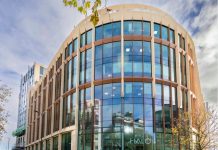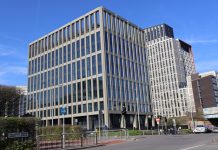Office take-up in Central London for the final quarter of 2016 totalled 3.5 million sq ft, the highest since Q3 2015, 15 per cent above the long-term average and driven by strong activity across the whole market, according to the latest research from global property adviser Knight Frank.
The Central London property market has witnessed significant capital inflows since the referendum, despite an initial pause for breath. For London real estate, the shift towards a wider world of occupiers and investment capital is at an advanced stage. Seven of the ten largest occupier deals in 2016 were to overseas corporations, particularly from North America, which is the same as in 2015.
Of the £9.3 billion of overseas money invested in Central London offices in 2016, 80 per cent came from outside of Europe. China and Hong Kong were the largest source of foreign investment, accounting for £2.9 billion, which was 60 per cent more than that deployed by Europeans.
The attraction of London to the office occupier or property investor is that this ‘Back to the Future’ scenario is not science fiction, it is already a functioning reality. London just needs to take this proven success story and build it out further.
John Snow, Head of Commercial, Knight Frank, commented: “In 2017, Central London will see international money diversify further, thanks to the fall in the pound’s value, widening the range of buyers in the market, and further reducing the importance of the EU as a source of funds. This pattern will play out in other parts of the London economy, given that tech has always been US-biased and finance historically traded across the time zones.
“A new growth pattern for the London economy has already emerged, and will now gain momentum, which harks back to its day as the hub of the Commonwealth trade system. The new model is closely entwined with North America and Asia-Pacific, built around common ground on language, law and business practice. Within this new system, London has a Switzerland-like role, as a safe haven to park money as an insurance policy against the unforeseen.”
Stephen Clifton, Head of Central London Offices, Knight Frank, commented: “We see London’s long-term growth story unchanged by the decision to leave the EU. In order to become a city of 10 million people, the capital needs to extend its crowded CBD and there are seven new core districts currently under development – the Olympic Village adjacent to Stratford, Nine Elms, Waterloo, White City, London Bridge Quarter, Canary Wharf and Canada Water. London’s centre is rapidly expanding north, east, south and west.
“A wall of overseas money is migrating towards London in 2017. The main problem facing investors will be sourcing stock. Overall, we enter 2017 with less certainty than many of us would like, or are used to. However, the fundamentals of the London office market are strong. In the leasing market, the tech firms have shrugged off Brexit and are taking space. In the investment market, overseas investors are showing a strong appetite for London offices. We view 2017 as a year that will surprise on the upside.”
James Roberts, Chief Economist, Knight Frank, commented: “There is a lot of concern over London financial jobs moving to Europe as a result of Brexit, resulting in surplus space coming to the market. In reality, the figures show that tech and creative firms have long since overtaken finance as the driving force in the London office market. Tech and creative was the largest source of office demand in 2016, as it has been for every year since 2011.
“I see this rising digital tide counter balancing the impact of financial job losses. If technology and creative industries in London continue to expand at their average growth rate over the next three years that would off-set a 15 per cent fall in financial sector headcount. Anecdotal evidence suggests that tech firms are planning significant growth in 2017, with Facebook alone pledging to raise job numbers in London by 50 per cent. Recent office deals by Apple at Battersea Power Station, and Amazon at Principal Place, re-enforce the message that tech is still committed to growth in London.
“I view Brexit as a two year road bump for the London economy, with some back office jobs going abroad, but the number being exceeded by job creation in the digital sector.”





















